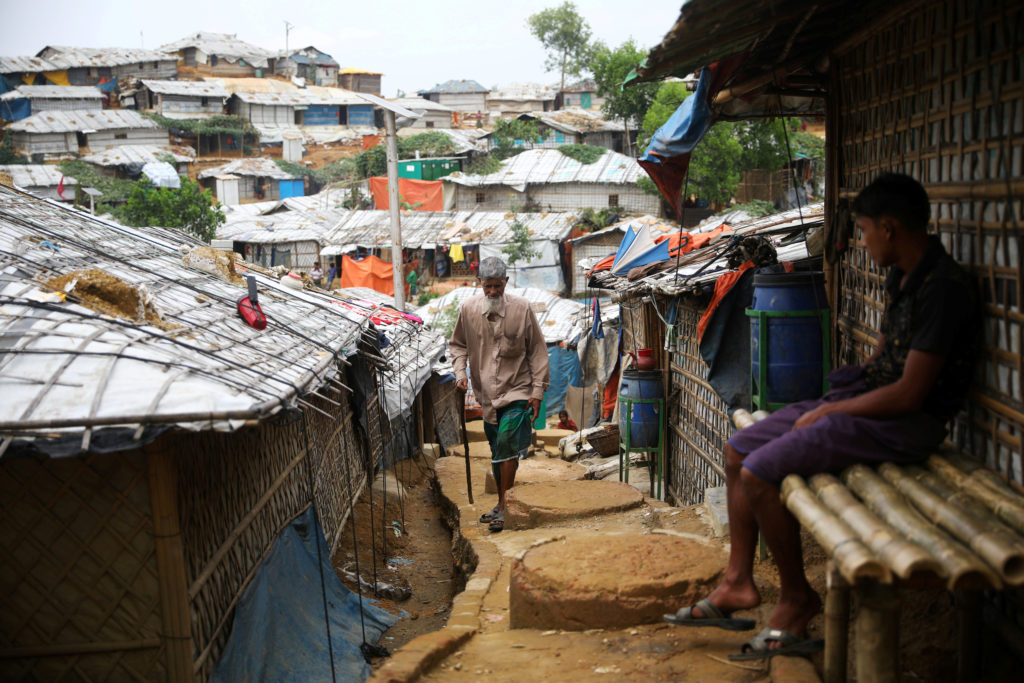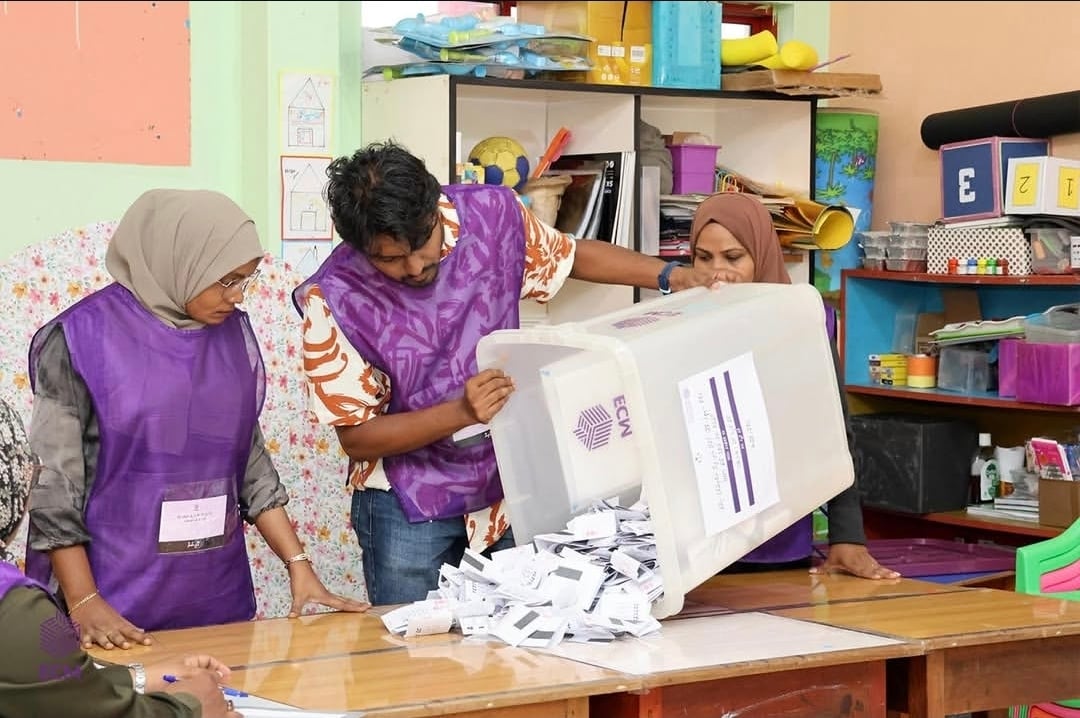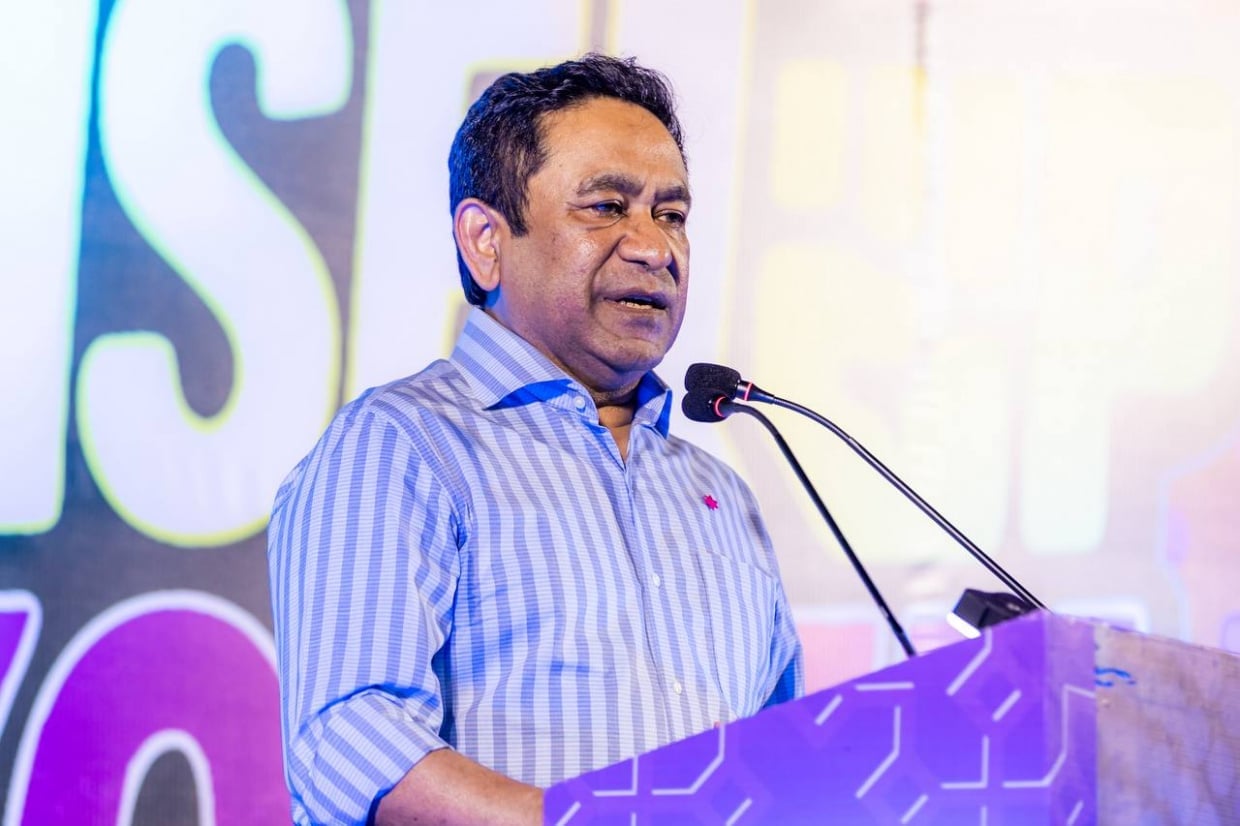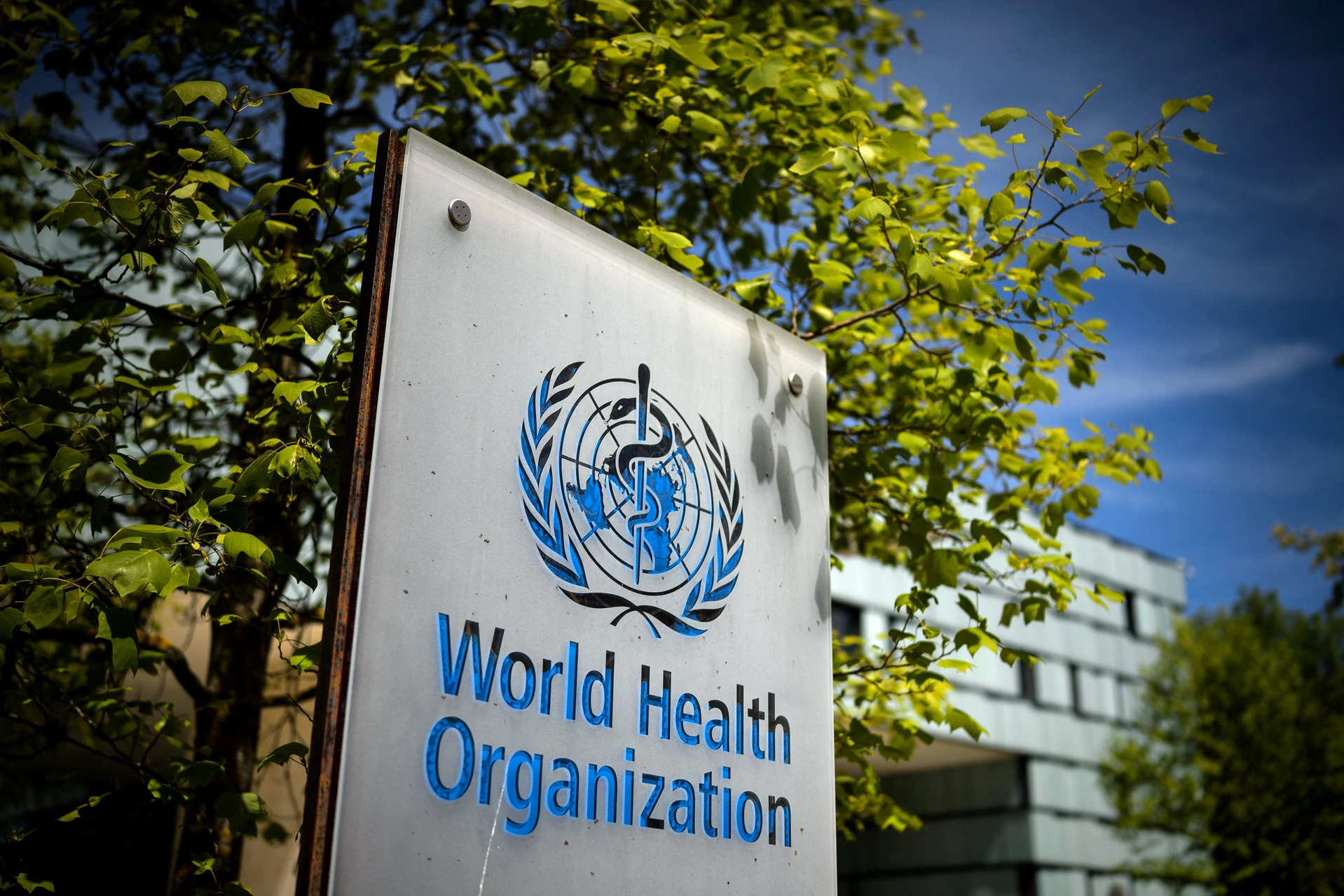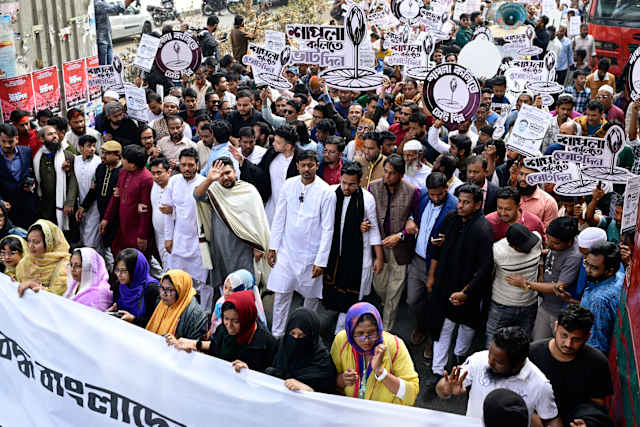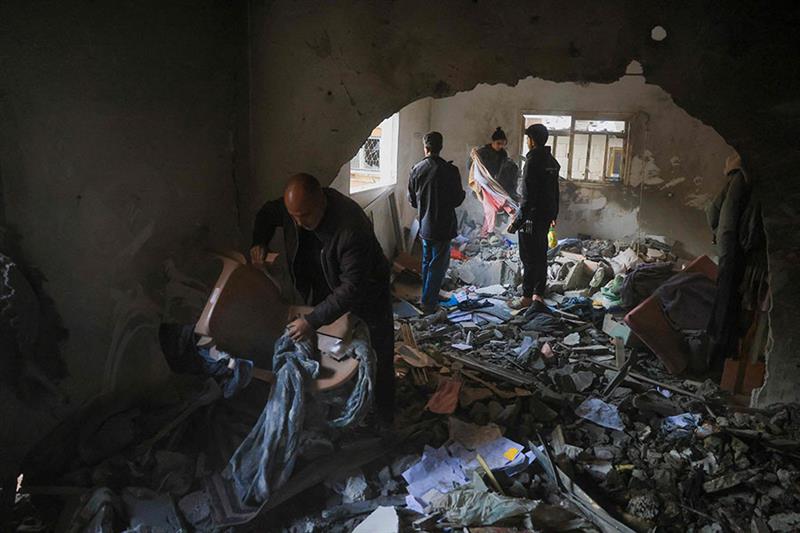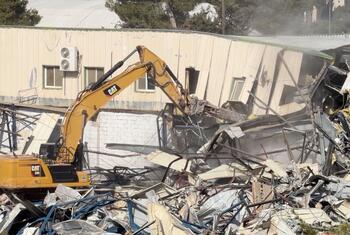Bangladesh has ordered a strict lockdown in five camps that are home to nearly 100,000 Rohingya refugees following a sharp rise in coronavirus cases this week.
Nearly a million Rohingya refugees who fled persecution in Myanmar live in 34 sprawling camps in southeastern Bangladesh, the world’s largest refugee settlement.
Although cases in the camps have stayed relatively low since the pandemic began, test results on Wednesday and Thursday showed a higher rate of transmission. Campaigners have warned that the crowded conditions make it difficult to stem the virus’s spread.
“The coronavirus spread in the camps has been low since the beginning. But the spike made us take this decision as a preventive step,” said Douza, who works at the government’s Refugee, Relief and Repatriation Commission (RRRC).
Under the lockdown that took effect on Thursday, residents will not be able to move between different camps and only essential services will operate.
There have been 864 confirmed cases of COVID-19 in the refugee camps out of about 41,500 tests, and 13 deaths.
Nearly a million Rohingya refugees who fled persecution in Myanmar live in 34 sprawling camps in southeastern Bangladesh, the world’s largest refugee settlement.
Although cases in the camps have stayed relatively low since the pandemic began, test results on Wednesday and Thursday showed a higher rate of transmission. Campaigners have warned that the crowded conditions make it difficult to stem the virus’s spread.
“The coronavirus spread in the camps has been low since the beginning. But the spike made us take this decision as a preventive step,” said Douza, who works at the government’s Refugee, Relief and Repatriation Commission (RRRC).
Under the lockdown that took effect on Thursday, residents will not be able to move between different camps and only essential services will operate.
There have been 864 confirmed cases of COVID-19 in the refugee camps out of about 41,500 tests, and 13 deaths.



